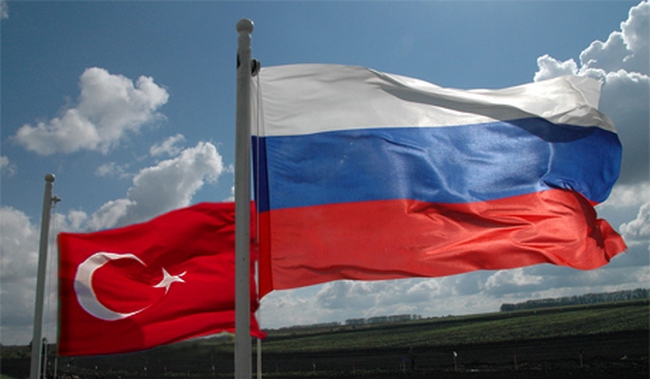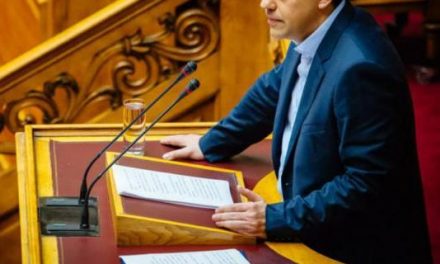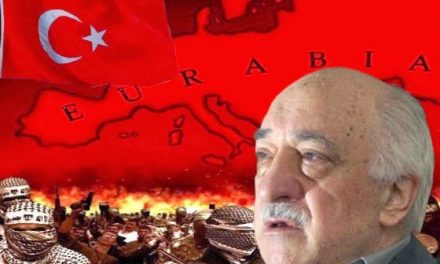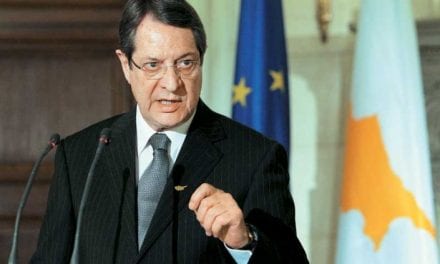The meeting of Turkish leader Recep Tayyip Erdogan with Vladimir Putin in St. Petersburg has raised questions about Turkey’s true foreign policy intentions.
By Russia Direct
Erdogan meanwhile accused Russia of exploiting the pilot’s death to bomb Turkey’s allies in Syria, and he demanded an apology for Russia’s casual violation of Turkish airspace. Acrimony reigned until July, when Erdogan issued a surprise apology to the parents of Russia’s dead airman, and since that letter, reconciliation has continued at a frantic pace.
After a military coup attempted to overthrow Erdogan, a few reassuring words from Putin catalyzed this rapprochement, which culminated in the meeting on Aug. 9 in St. Petersburg – their first since the jet was downed. But despite Erdogan’s obsequious language, it is not yet clear what the embattled leader wants.
Turkey’s pivot to the East
The first option is that he seeks a genuine rapprochement and indeed a strengthening of ties with Russia. This would be a return to the natural order of things – increasingly authoritarian strongmen looking out for one another – and could even feed into thealliance of malcontents Russia has been assembling.
Turkish diplomats have assured their Western counterparts that all Turkey wants is a return to pre-crisis relations, and that this should not trouble them. But this ignores the extent to which Turkey’s relationship with the West has soured since November.
As Turkey’s Foreign Minister Mevlut Cavusoglu has bitterly noted, Western capitals were hardly outraged by the idea of Erdogan losing power, even to a violent military coup, and Western media has not shied away from revealing the full extent of Erdogan’s post-coup purge. This perceived hostility makes closer relations with Russia particularly appealing.
The difficulty with this approach is that Russia, which has its own slew of problems at home and abroad, still holds most of the cards when it comes to their relationship. Having locked horns after the Su-24 incident, it quickly became apparent that Putin was going to win, and that after that, he would make Erdogan suffer.
Sanctions on Turkish produce and particularly on Russian tourism threatened to shave between 0.3 and 0.7 percent off Turkey’s GDP and played their part in destabilizing Turkey’s banking industry.
Meanwhile Turkey’s standing among Russians plummeted. A Levada poll published in June saw Turkey rise from nowhere to the country third most hostile to Russia – behind only the United States and Ukraine, and ahead of the Baltic States, Poland and Germany.
The economic blowback of these sanctions for Russia, however, was minimal, and while Russians might not appreciate their government further limiting their choice of holiday destination, 87 percent obliged and went elsewhere. Having incurred minimal costs, Russia has much to offer Turkey in the way of normalized relations, but much less to gain.
The little Turkey has to offer it has already given in exchange for a gradual removal of sanctions – a removal that can be slowed or stopped. In addition to Erdogan’s apology, he has very publicly badmouthed the West, accusing the European Union of “playing with” Turkey’s hopes for accession.
Echoing Russia’s time-honored slogans, he then accused the West of “double standards,” and alleged that the July coup was in some way abetted by Western powers. The two pilots responsible for shooting down Russia’s jet in November have, conveniently enough, been arrested and charged with taking part in the coup. Meanwhile, Turkey has adopted Russia’s narrative that there can be no solution in Syria without Russia.
Such a change in Turkey’s Syria policy, where the two have long backed opposing sides, is undoubtedly the prize Moscow will be pursuing. It is difficult to see how a strongman like Erdogan – who for appearance’s sake cannot be seen to lose – could bow to this pressure, but Moscow is betting that international isolation may compel him to. Ultimately this will be the measure of Turkey’s Eastern pivot.
A balancing act
There is an alternative, however. Erdogan could be pursuing a kind of Cold War neutrality policy by balancing Turkey’s relations between two antagonistic blocs in an attempt to exact concessions from both. The way he has done this, however, reflects the crisis he is in and can charitably be termed clumsy.
First, Russia is clearly under no obligation to provide concessions and will make Turkey pay for even a return to normal relations. Second, it seriously overestimates the West’s capacity for coordinated diplomacy and strategic vision.
Lastly, and most importantly, it underestimates the hostility in Europe towards further political bartering with Turkey after the migrant deal was struck in November. [In exchange for Turkey agreeing to help with Europe’s migrant crisis – most notably, taking responsibility for “irregular migrants” crossing from Turkey into Greece, Europe pledged a package of financial aid and re-energized talks about Turkey’s bid to join the EU – Editor’s note].
Western media, regardless of ideological orientation, has been relentless in criticizing the deal for its alleged inefficacy, but took particular dislike to the perception that the EU had been extorted by Turkey, which was promised an impressive array of concessions on EU membership and as much as €6 billion ($6.7 billion) in aid.
Threats from Erdogan to open Turkey’s borders and cease cooperation with European authorities did not help this perception, and a poll among Germans this month revealed that only 35 percent want to keep the migrant deal in place; 52 percent want it terminated. Whatever Turkey wants from the EU, European leaders will think twice about giving.
Ultimately, neither of these paths offers salvation and Turkey’s foreign policy crisis is likely to continue. Nevertheless the choice it makes could have profound consequences for the conflict in Syria, and for the region as a whole.



















